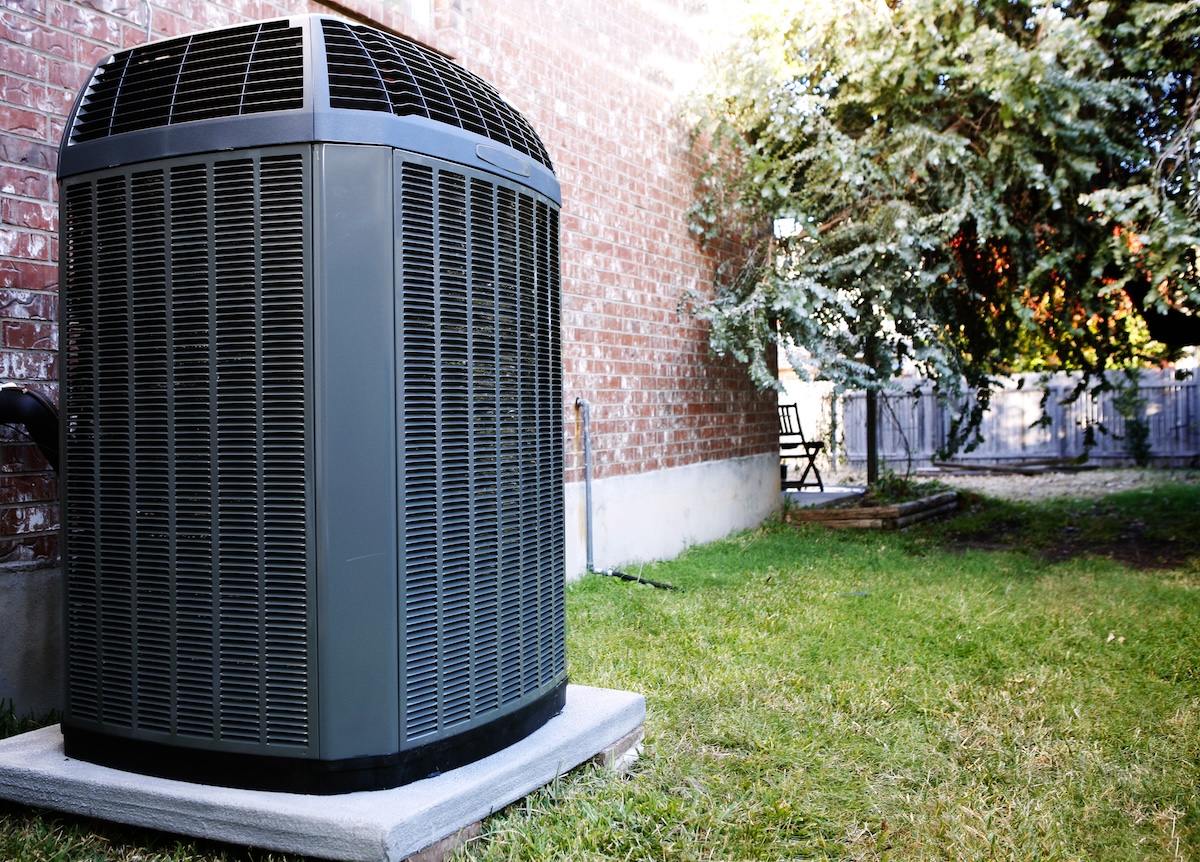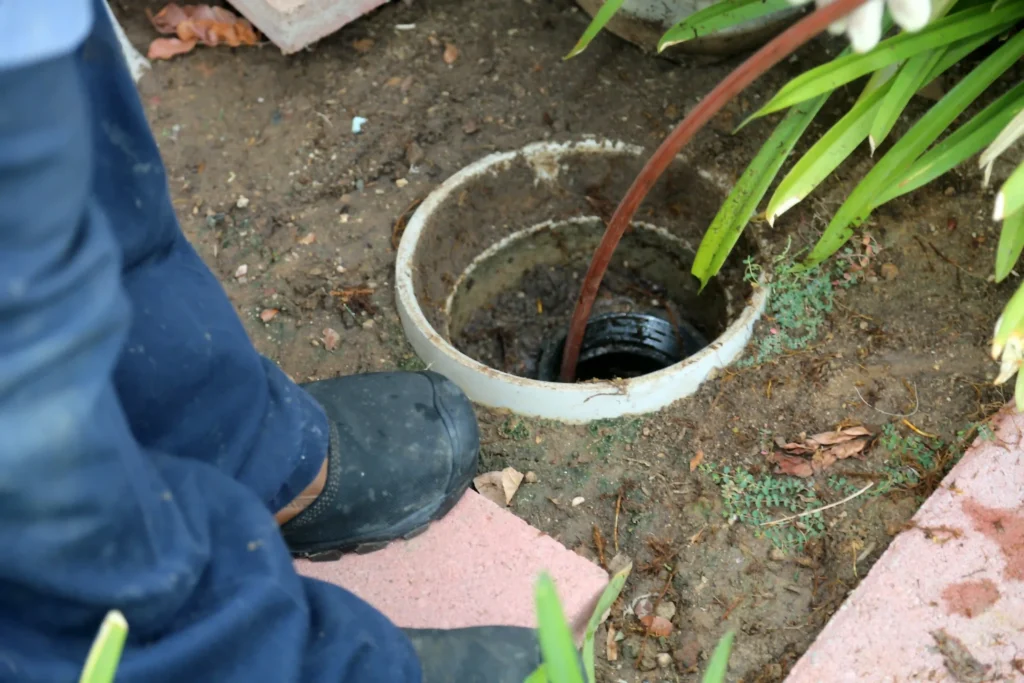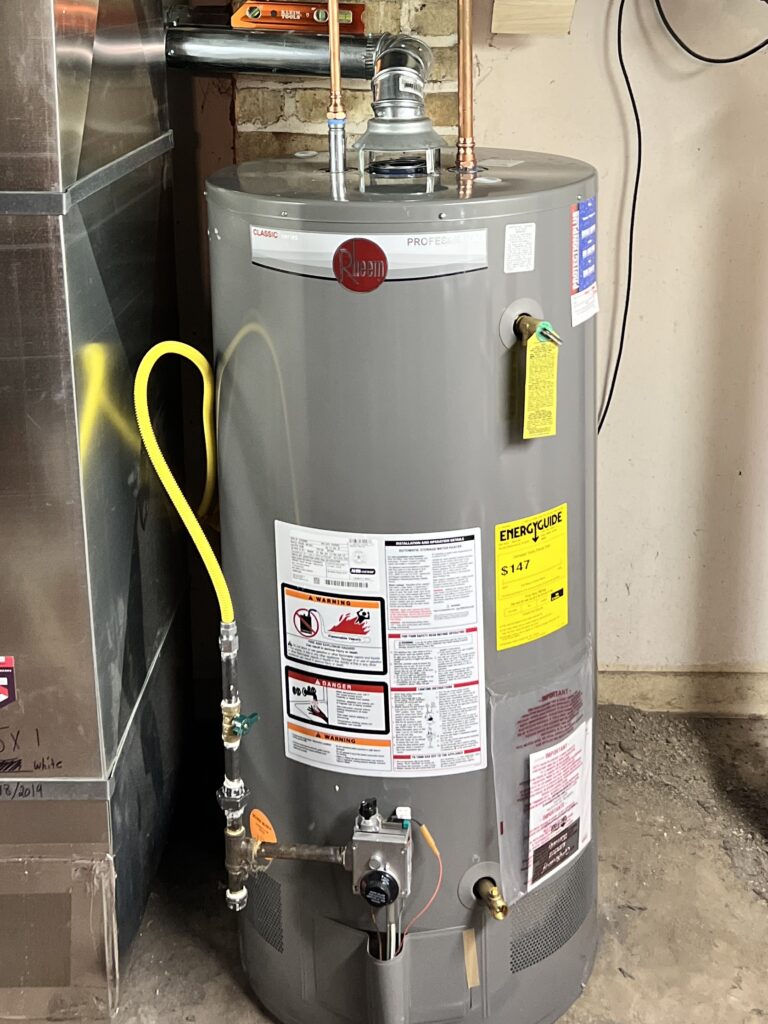

Blog
Troubleshooting Common Air Conditioner Issues

Updated: August 31, 2025
In the summer, it’s common to experience extended periods of hot and humid weather. And this is not the time of year any of us want to come home to find our air conditioner not working properly.
When this happens, sometimes the solution is as simple as changing the furnace filter. There are a few reasons your AC may not be working, which is why we put together this guide for troubleshooting common air conditioner issues.
“My air conditioner is running but not cooling.”
It might sound obvious, but the first sign that your air conditioner is not working properly is that your house is going to be hot.
What you should do:
The first thing we recommend doing is changing the filter in your furnace. A clogged filter can significantly impact how your central air operates. It’s also important to check your furnace and air conditioner for visible signs of blockage or damage. Take a few minutes to step outside and check if your air conditioner is free of obstructions such as leaves, branches, grass clippings, plants, or protective covers. If something doesn’t look right, it’s probably best to call and schedule a service appointment.
To avoid these problems down the road, consider signing up for one of our annual maintenance programs to stay ahead of common AC issues like this.
“My air conditioner was working, and my house was comfortable — that is until it was 97 degrees outside.”
Your air conditioning system might only be functioning at marginal capacity. That means it isn’t able to keep up on extremely hot days. If you haven’t had air conditioner annual maintenance performed, the condenser unit could be dirty, and the coil could be clogged. This can cause your AC to work harder even though the house still feels too warm.
What you should do:
Same as above. Change your filter. Check the indoor and outdoor units for signs of blockage. Don’t hesitate to contact us; we’d be happy to come take a look.
“My HVAC system seems to be freezing up — should there be ice on the AC coils?”
The AC coil should never have ice on it. This could mean a few things, including a plugged filter or that the unit is low on refrigerant charge.
What you should do:
Turn your air conditioner off immediately and contact us to come service it. There’s not much you can do on your own for this problem, but it’s very important that you turn the air conditioner off so the ice will melt naturally. We also recommend you don’t try and chip away at the ice before a service tech arrives.
“There’s a pretty big puddle underneath my furnace. Is a leaking furnace dangerous?”
Yes, a leaking furnace is a bad sign. That could mean condensate water is running down through your furnace which could cause the AC blower motor and the circuit boards to burn out. This puts all the electrical components of your furnace and, in turn, the air conditioner, at risk.
What you should do:
This is another situation where you should call a certified HVAC technician right away to schedule a maintenance appointment.
When to Call an HVAC Expert If Your Air Conditioner is Not Working
In many situations where a homeowner is troubleshooting common air conditioner issues, we recommend calling a trusted HVAC technician to come take a look. Air conditioners and furnaces are not a small investment, and we want homeowners to receive the best advice and service in order to protect their HVAC system.
Here are a few examples of maintenance that should be left to a trained professional:
- If any maintenance needs to take place inside the air conditioner or furnace unit ― meaning you’d have to take something apart ― that’s better left to the professionals.
- Don’t use a hose to wash off your AC unit. The pressure can flatten the fins on the air conditioner and actually push dirt further into the coil. When we say an AC needs to be kept clean, we mean clean from the inside out. Professionals have the tools and the knowledge necessary to safely clean AC units and coils.
- If your air conditioner doesn’t seem to be keeping up with the hot weather like it normally does, don’t keep turning the temperature lower and lower. That’s just going to make the AC work harder than necessary without making your home any cooler. Plus, that means you’re not addressing the root of the problem (likely one of the scenarios above), and your AC system is not getting the repair it needs.








